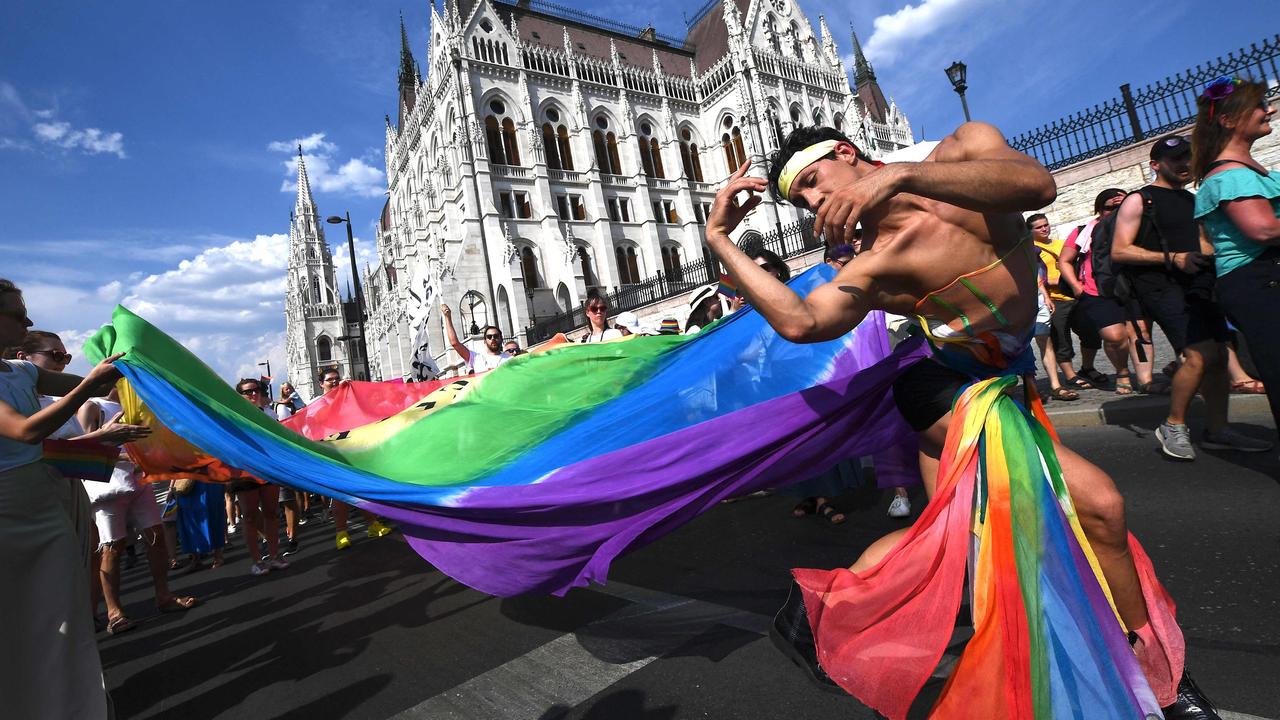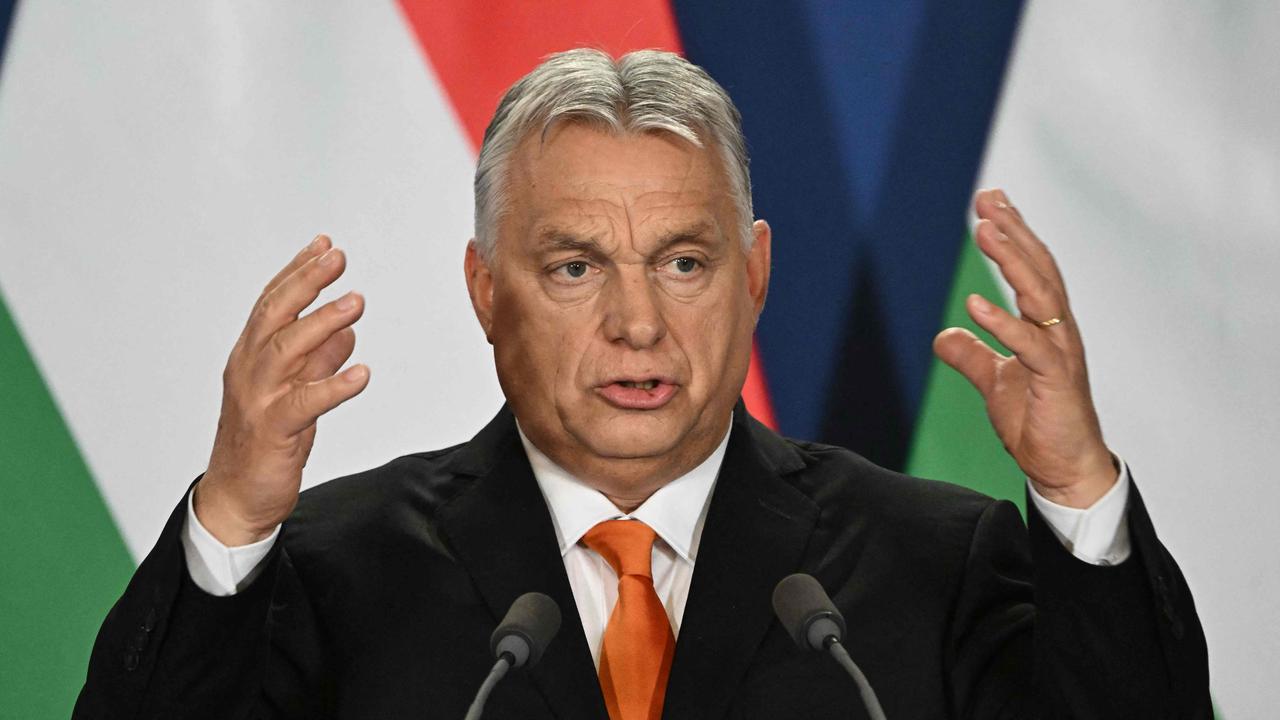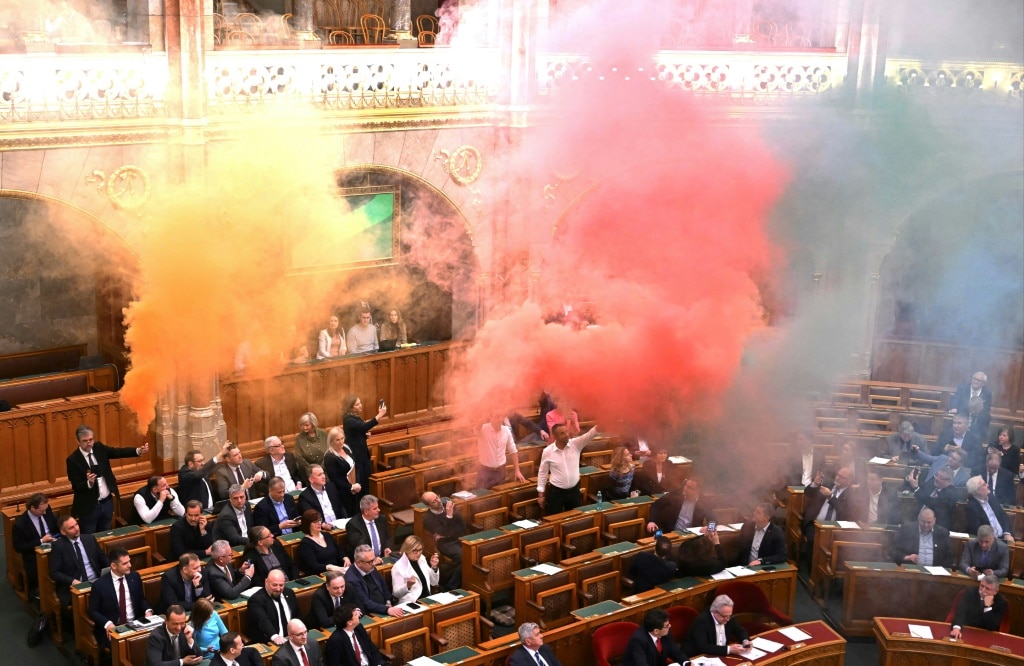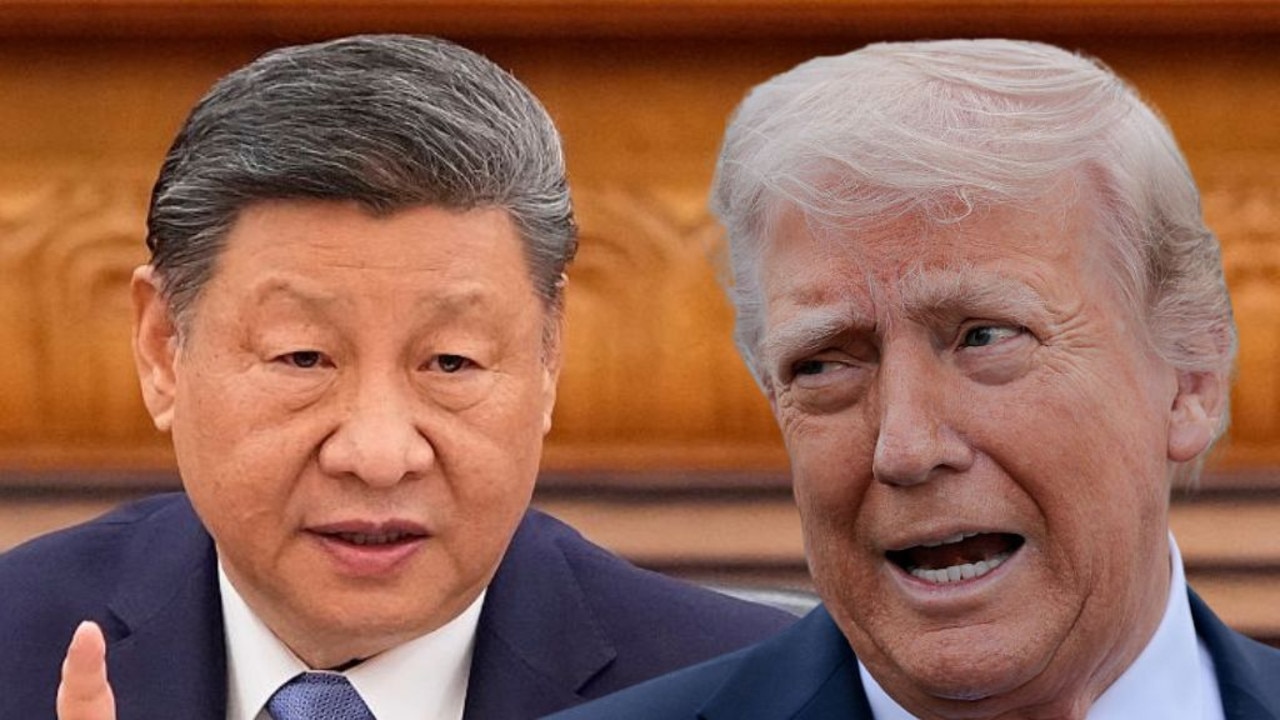European nation bans gay people from gathering
A European Union nation has taken the unprecedented step of banning gay people from gathering to protest with the excuse it “protects children”.

World
Don't miss out on the headlines from World. Followed categories will be added to My News.
A European Union nation has changed its constitution to bar gay people from gathering in public to protest.
Hungary’s parliament backed the law by 140 to 21.
The ruling means Budapest’s Pride march in June could be targeted by police. Those who attend could be photographed by authorities and fined.
But LGBTI Hungarians have said they will take part in the march for rights anyway.
The vote is been seen as the latest move by Hungary’s self-styled “illiberal” leader Victor Orban to crack down on human rights.
The constitutional amendment — which also proclaims that people can only be male or female — echoes moves on gender by Mr Orban’s ally US President Donald Trump.
In addition, the ruling opens the door to the “temporary” stripping of citizenship from some dual or multiple nationals, which could target Hungarian-American billionaire George Soros, a regular fixture of populist conspiracy theories.

Since his return to power in 2010, Hungary’s leader has widely restricted the rights of the LGBTI community, the media, courts and academia. In mid-March, he vowed to undertake an “Easter clean-up” against his domestic opponents he has called “stink bugs”.
However, Mr Orban’s ruling Fidesz party is facing string opposition from a new party Tisza ahead of next year’s general election. Fidesz likely believes targeting minorities could be a vote winner.
Hungary has justified barring an entire group of people from exercising their freedom of speech in order to “protect children”.
The new text in the constitution sates the “proper physical, mental and moral development (of children) take precedence over all other fundamental rights”, except the right to life.
Government spokesman Zoltan Kovacs wrote on X that the changes were a “constitutional safeguard against ideological influences that they argue threaten the wellbeing of children, particularly in the context of events like Pride parades”.
It’s not clear how a Pride parade taking place once a year, which anyone including children can avoid if they so wish, “threatens” young people.

Opposition politicians from the liberal Momentum unfurled a banner to protest the vote in parliament, while hundreds of protesters outside the building chanted “We will not allow ourselves to be transformed into Putin’s Russia”.
Ruby, a 19-year-old transgender woman, who declined to give her surname, told AFP that she joined the rally to stand up against the government which seeks “to eliminate transgender people” and “hide what they don’t like, just as in Russia”.
Human rights group Amnesty has said Budapest Pride “will take place” despite the ruling.
“For the last 30 years, people in Hungary have marched through the streets of Budapest to celebrate Pride and demand equality and dignity for LGBTI people,” said Dávid Vig, Director of Amnesty International Hungary.
“In June, Budapest Pride will take place, and we will be marching alongside all those who oppose discrimination and the rollback of freedom of expression and peaceful assembly”.

Strip Hungarians of nationality
Another prominent provision empowers the government to temporarily strip Hungarian citizenship from dual or multiple nationals — even if they acquired their nationalities by birth.
The governing party suggested the move is aimed at “speculators” financing “bogus NGOs, bought politicians and the so-called independent media” from abroad.
A related piece of legislation — to be voted on at a later date — specifies that Hungarian citizenship can be suspended for a maximum of 10 years and those affected can be expelled from the country.
Nationals from other EU member states would be exempt, together with a few other countries in Europe, according to the proposal.
Last week, more than 30 prominent Hungarian legal experts castigated the measure as “an unprecedented construction in international law” that could be contrary to binding human rights conventions.

‘Soft Putinism’
Critics say the proposed legal changes further erode democratic rights in the central European country, moving the EU member state even closer to the kind of authoritarianism seen under Russia’s President Vladimir Putin.
“You could consider this soft Putinism,” Szabolcs Pek, chief analyst at the think tank Iranytu Intezet, told AFP.
“People are not falling out of the window, but the government is increasingly limiting the space for opposition politicians, journalists and civil society,” he said.

Politically, the measures are seen as an effort to shore up dwindling support for the ruling coalition, divide the opposition along ideological lines, and court the far right ahead of next spring’s parliamentary election.
Mr Orban’s legislative “boisterousness” is a bid to take back control of the public agenda, according to Mr Pek.
“In this respect, he has been successful, because public discourse is no longer about the failing public services or the weak economy,” Mr Pek said.
Since last year, Mr Orban has faced an unprecedented challenge from former government insider-turned-opposition leader Peter Magyar, whose Tisza party has been eroding Fidesz’s longtime solid lead, according to opinion polls.
Mr Pek stressed the Pride ban is a “trap” for Mr Magyar: standing up for LGBTI rights could lose him conservative supporters, but his current silence might drive left-wing and liberal voters to other opposition parties
More Coverage
Originally published as European nation bans gay people from gathering








